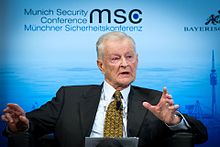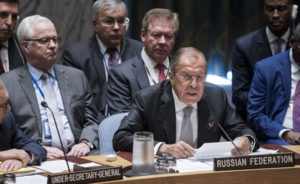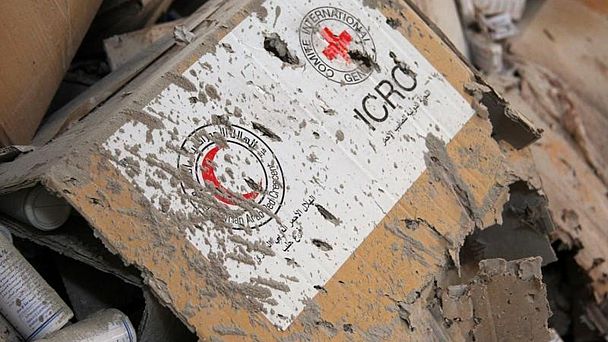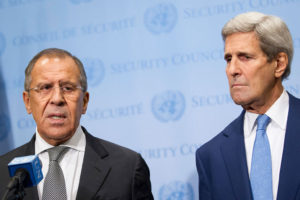
After announcing the cutoff of official diplomacy with Russia regarding Syria, major media reported Washington insiders as stating that several options were being considered in response to the continued advances by the Syrian Arab Army, with Russian air support, to liberate eastern Aleppo from the Al Nusra and Al Nusra-affiliated terrorists who currently occupy it. These options, as reported last week by RT, partly based on a Washington Post report, included covert military strikes against the SAA:
Top Washington officials are set to discuss striking positions of the Syrian military without a UN Security Council resolution. Bombing air force runways with missiles fired from coalition planes and ships is being considered, according to a report.
“One proposed way to get around the White House’s objection to striking the Assad regime without a UN Security Council resolution would be to carry out the strikes covertly and without public acknowledgment,” one administration official who is to take part in the discussions told the Washington Post.
A meeting of the Obama administration’s Principals Committee is scheduled for Wednesday, the newspaper reported, adding that a meeting of the National Security Council could follow this weekend.
The CIA and the Joint Chiefs of Staff expressed support for “limited military strikes against the Syrian government,” last Wednesday, when the US discussed such “kinetic” options, the official told the Washington Post.
“There’s an increased mood in support of kinetic actions against the regime,” one senior administration official was quoted as saying.
“The CIA and the Joint Staff have said that the fall of Aleppo would undermine America’s counterterrorism goals in Syria,” he added.
After threatening to withdraw from the Syrian peace process for weeks, Washington finally announced the “suspension” of bilateral contact with Moscow concerning the crisis on [last] Monday.
In response, the Russian Defense Ministry announced that it would shoot down any airplanes that attacked the Syrian Arab Army that would threaten Russian military personnel working in conjunction with them as there would be no time during the fog of war to identify who the aggressors were before defending themselves against such attacks. As reported by Euronews on October 6th:
Russia has issued one of its strongest warnings yet against Western intervention in Syria, hinting it may respond with its own missiles.
Washington has reportedly been considering limited airstrikes on President Bashar al-Assad’s forces.
The Defence Ministry in Moscow reportedly believes such an attack would threaten its troops operating Russian missile systems deployed in the country. They would respond immediately as they would not have time to identify the flight paths of incoming rockets or aircraft, according to a spokesman.
“I would recommend that our Washington colleagues carefully consider the possible consequences of implementing such plans. I would like to remind US strategists that air cover for Russian airbases in Hmeymim and Tartus is provided by S-400 and S-300 air defence systems, whose radius of action could become a surprise for any unidentified flying objects,” said Russian Defence Ministry spokesman Igor Konashenkov.
Subsequently, a solemn Josh Earnest announced during a State Dept. press conference that Washington had decided against any military action in Aleppo at this time.
Analyst Alexander Mercouris summed up the turn of events this way:
Following yesterday’s Russian warning that Russia stood ready to shoot down US aircraft or missiles attacking Syria, the US has confirmed all plans for military action against Syria have been dropped.
White House spokesman Josh Earnest confirmed this speaking to reporters on Thursday 6th October 2016.
“The president has discussed in some details why military action against the Assad regime to try to address the situation in Aleppo is unlikely to accomplish the goals that many envisioned now in terms of reducing the violence there. It is much more likely to lead to a bunch of unintended consequences that are clearly not in our national interest.”
The US will never admit that it was the Russian warning that deterred it from carrying out air and missile strikes, and it is still pretending that the option of military strikes is still on the table. In Josh Earnest’s words
“I’m not going to take any options off the table. I am not going to be in a position [we’re] taking options off the table for the commander-in-chief.”
However these are face-saving words.
Cooler heads have prevailed and an escalation between the world’s two nuclear superpowers has once again been averted – for now.
I have formed an overall opinion of the situation in the LPR, and I have voiced it on more than one occasion. As for the allegations regarding the planning of a coup, I have substantial reasons to doubt the official storyline. From what I can gather, the current repressions and assassinations taking place in Lugansk are a continuation of the never-ending personal and commercially driven infighting between the former and the incumbent political and military leadership that has been simmering since 2014. In other words, the recent events have roots in the fears and suspicions of the current Lugansk leadership, as well as in the aspiration to establish in the LPR a vertical chain of command at the political and at the economic level. In reality, no one is foolish enough to organize a coup in the LPR, even if certain individuals have now been officially labelled as suspects. The reason why is rather simple: the people who are currently being investigated understand very well that the only way to secure power in the LPR is in back-rooms of Moscow, rather than through an armed uprising. Even if someone were to succeed in removing the current Moscow appointees, and take their offices, these people would be immediately replaced with new figureheads, under direct and complete Russian control.
Despite the very brutal methods of “establishing order” in the LPR (whereas in Donetsk problems are often resolved with little more than a private “consultation”, in Lugansk assassinations are the rule), the past two years have failed to yield an established vertical chain of command, and the ruling elites are driven by near-total suspicion and mistrust toward each other. It got to the point that the head of the LPR, Igor Plotnitsky, had to ask the DPR for assistance (with Zakharchenko sending the Sparta Battalion as reinforcements), because he was not convinced that the interests of the group in power could be protected by his own security forces.

(Manolis Pilavov; https://thetruthspeaker.co/2016/10/07/updates-from-dlpr2-primaries-and-prison-slave-labour-camps/)
Meanwhile, independent journalist, Graham Phillips, reported on the LPR elections that took place on October 2nd:
The preceeding week saw around 30 international observers in the city, given daily excursions around museums, and sights of the Lugansk People’s Republic. These individuals were not from an organisation, and in fact the OSCE upon being asked at a press conference last week why they would not be observing the primaries, replied that the OSCE did not do that.
So it was, volunteers from across the world – France, Italy, Finland, Palestine, Israel, USA, Poland, and India, were put up by the Lugansk People’s Republic, but received no financial recompense, for taking part in an active programme, culminating in observing the primaries.
And, on the day itself? The total turnout was reported as 61,323 – high, given that only 34,450 were on the preliminary list to vote. Requirement to vote was a passport, local address, and those not on the list this time, were added to the database. Incidentally, Lugansk pre-war had a population of over 400,000, what it is now is open to estimate. LPR sources will claim it’s near back to pre-war levels, a more realistic assessment could be closer to 300,000.
…the polling stations were as polling stations should be, everything was in order, ordered, people who voted knew who and what they were voting for. The main vote, for the mayor of Lugansk, wascomfortably won by incumbent Manolis Pilavov, with 86%, which matched what people were saying at the polls. As for Pilavov (pictured), he’s a likeable, moderate, popular city head, widely perceived to have done a good job in his 2 years at the helm, tipped to play a big part in the LPR going forward.
Accompanying videos and interviews are available here.





